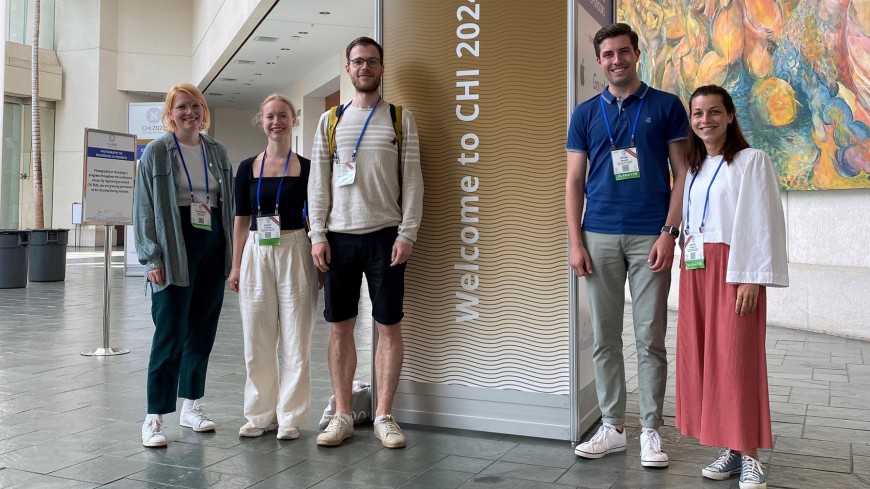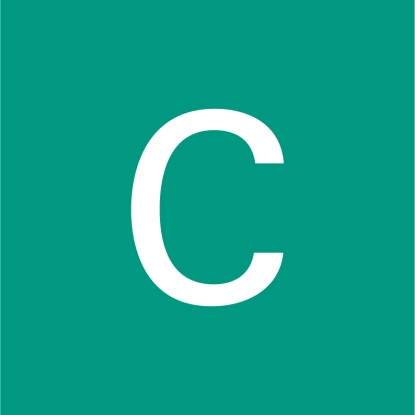Surfing the Research World at CHI 2024
Kilian Demuth’s CROSSING Collaboration Award Experience
2024/08/22
Kilian Demuth, doctoral student from the research group PEASEC at TU Darmstadt, is one of the recent recipients of the CROSSING Collaboration Award 2023. The award not only acknowledges a team’s collaborative contributions to research but also provided Kilian with the opportunity to attend the ACM CHI Conference on Human Factors in Computing Systems this May. In this interview, Kilian shares his experiences at the conference, insights from the sessions he attended, and how the unique setting of Hawaii added a special dimension to his personal growth.

Kilian, you were one of the winners of the CROSSING Collaboration Award. What is the paper about that got you and your CROSSING colleagues the award?
Kilian Demuth: In our collaboration, we developed a technique that can be used to test whether a smart speaker was hacked or not. Furthermore, we built an Android application that explains that technique to users with different backgrounds, including those who do not know much about IT security. Finally, we evaluated both the app and the technique on their usability and understandability and the users’ trust in the system in a study.
The award comes with a free conference visit of your choice. Where did you go?
Kilian Demuth: Thanks to the CROSSING Collaboration Award, I had the chance to attend the ACM CHI Conference on Human Factors in Computing Systems in May. This is the leading conference in human-computer interaction, organised by the Association of Computing Machinery. I am particularly interested in privacy and how to protect users' privacy and support users in protecting their own privacy and making safe decisions.
What did the conference have to offer?
Kilian Demuth: The CHI began with a keynote speech by Prof Kate Crawford on the ecological, economic and electoral effects of currently existing AI. It was very interesting to see what impact AI is already having on our lives and our planet and to compare this with the existential risks posed by AI. After the keynote, the actual conference started with its presentations. As CHI offers a stage for many other research topics besides privacy, more than 20 sessions were held in parallel at CHI. As a result, there were many exciting talks in each slot, and it was often difficult to decide which talks to listen to. In addition to many engaging presentations, I also had the opportunity to meet some researchers worldwide. It was motivating to see that people everywhere are working on ways to protect the privacy of users and how my research on the individualisation of software fits in well with the current state of research.
How did the unique setting of Hawai'i influence the conference and your personal experience?
Kilian Demuth: As the conference was held in Honolulu, Hawai'i, Hawaiian history and culture and its close connection with nature were also important topics at CHI. In the run-up to the conference, there was a workshop explaining the history and culture and how we can be good guests in Hawaii. The closing keynote by Samuel Ohukani'ōhi'a Gon also presented the Hawaiian Islands as a socio-ecological microcosm of the world. In addition to the conference, Hawaii was also worth the trip for its beautiful nature. On the appended holiday trip, my colleagues and I were able to explore the island of Kaua'i with its many state parks as well as the island of O'ahu. In conclusion, I can only thank CROSSING for the opportunity to attend this great conference in such a beautiful place.
Thank you, Kilian!
The interview questions were asked by Daniela Fleckenstein.
About the CROSSING Collaboration Award
The CROSSING Collaboration Award recognizes exceptional internal collaboration and advancements in research, and is open to all CRC members. This annual award is bestowed by the CROSSING directorate. Any collaborative effort among projects qualifies for the award, encompassing joint publications, contributions to CogniCrypt, co-developed software tools or demonstrators, or collaborative bachelor's or master's theses.


